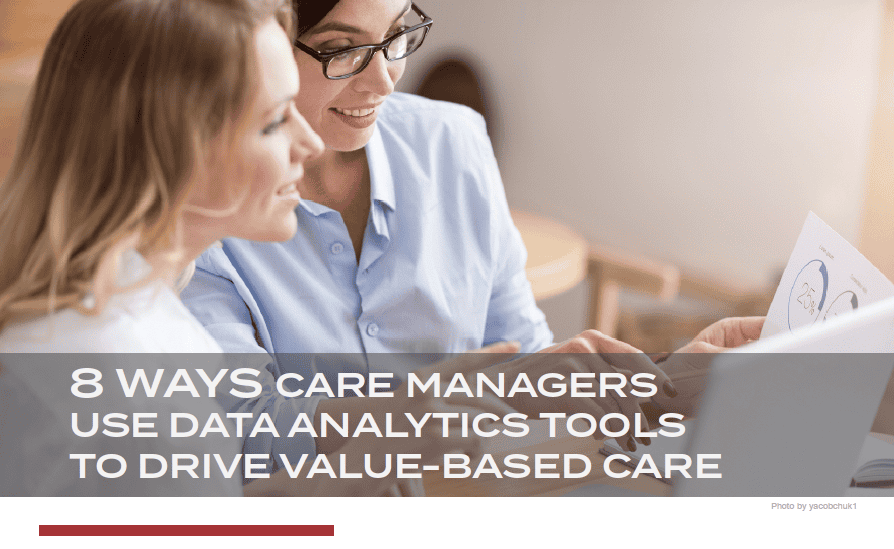What’s in Your Care Managers’ Data Analytics Toolset?

As value-based care (VBC) and related payment models replace fee-for-service arrangements, diversity of contract terms is growing, too. And for every success a value-based contract scores, every lesson learned by payors and providers, the complexity of the next year’s contract increases.
To adapt to the variability and ever-higher performance expectations, everyone from finance and quality managers to practice administrators, clinicians to care managers benefits from data analytics tools.
Care managers in particular can optimize their impact on VBC and health outcomes with access to analytics. Cancer care managers whose analytics efforts show positive markers of depression, for example, can inform multidisciplinary teams to add behavioral health services to personalized oncology care. Social determinants of health (SDoH) information surfaced in data analysis will prompt diabetes care managers to source discounts for insulin or rides to doctor’s appointments for disadvantaged patients.
VBC demands accountability from multiple professionals on the health system side and engages a variety of team members on the payor’s side as well. Data analytics has an indubitable role, but its effectiveness relies on its availability to the people who can take analytics-driven insights and put them to use by troubleshooting obstacles to care, reducing predicted risks of high-cost care and chronic disease development and meeting the demands of SDoH.
To learn more about how care managers can leverage data analytics to support VBC, read “8 Ways Care Managers Use Data Analytics Tools to Drive Value-Based Care.”
